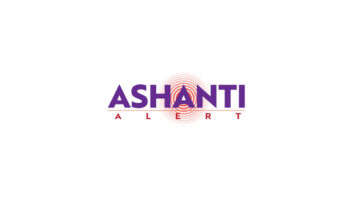WASHINGTON � In an effort to address concerns about the emergency alerting system that arose after last month�s erroneous alert, Sen. Brian Schatz (D-Hawaii), Sen. Kamala Harris (D-Calif.) and Sen. Cory Gardner (R-Colo.) introduced the Authenticating Local Emergencies and Real Threats Act on Feb. 6.
Nicknamed the �ALERT Act,� the legislation would prohibit state and local governments from alerting citizens about missile threats and would place �the sole responsibility of alerting the public� within the purview of the federal government, as well as �improve the emergency alert system,� according to a press release issued by Sen. Schatz�s office.
Specifically, the announcement said �state and local governments have been largely responsible for alerting the public of threats from natural disasters and severe weather. But the system they use rests upon a patchwork of technologies and procedures that do not follow consistently across the government agencies that issue these alerts.�
It addressed the Hawaii false alarm and said the incident �highlighted some of the weaknesses in the state�s emergency alert system� and �made clear that there is a need for federal standards,� as well as raised concerns about �the state�s responsibility to issue a missile alert.�
In addition to serving as the senior senator for the state where the false alert was mistakenly deployed, Schatz is the ranking member on the Senate Commerce Subcommittee on Communications, Technology, Innovation and the Internet.
�The people who know first should be the people who tell the rest of us. This legislation makes clear that
the authority to send missile alerts rests with the federal government,� Schatz said in the announcement.
Because the ALERT Act would �restrict the authority to alert the public of a missile threat to the Federal government,� the legislation would also manadate that the Federal Emergency Management Administration create a process to promptly notify state authorities when a missile alert is issued so state and local governments can activate their emergency plans.
The IPAWS subcommittee of the FEMA National Advisory Council would also be required to recommend best practices for state and local governments, including �regarding the incident management tools� and �procedures for testing/sending notifications� in order to prevent false alarms.
Then, FEMA must �establish minimum requirements for state and local governments to participate in IPAWS within 120 days of receiving the subcommittee�s recommendations.� However, states would be allowed �reasonable time� to implement new requirements.
�Since they have full control over drafting and issuing alerts, state and local governments need to meet certain standards to participate in our national alert system, and the federal government must be heavily involved in any alerts regarding national security crises,� said Sen. Gardner.
The legislation also calls on FEMA to �establish a process to test the incident management and warning tool� adopted by state/local government to originate and send alerts, and then to certify the tool meets technical requirements.
Finally, the ALERT Act directs FEMA to review its Emergency Operations, National Watch and Regional Watch Centers and assess ability to track state and local IPAWS alerts. FEMA should also make a decision about which notifications should require federal government notification.
�This is a common-sense step to ensure that accurate national security information is used to assess whether or not an emergency alert about a missile threat should be deployed,� said Sen. Harris. �It will also ensure that state and local governments continue to play a critical role in emergency response efforts, and provide the federal government with the ability to make missile alerts a more effective public safety tool.�
The ALERT Act is also cosponsored by Sen. Dan Sullivan (R-Alaska) and Sen. Mazie K. Hirono (D-Hawaii).
�











